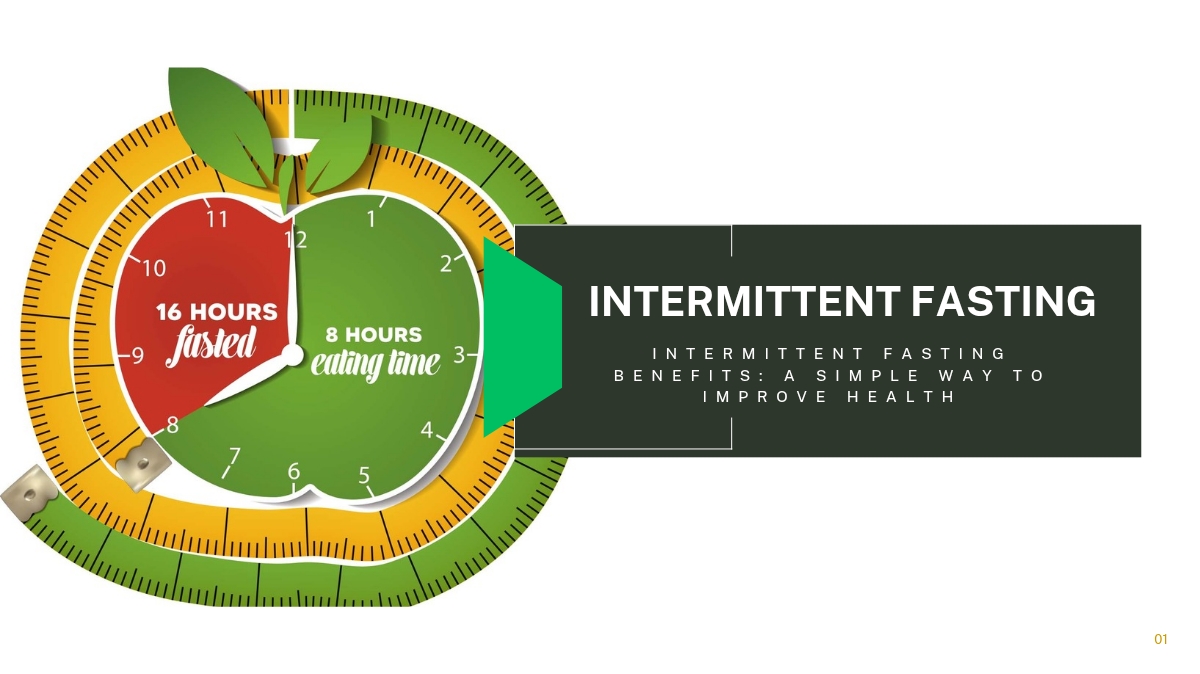Intermittent fasting is becoming one of the most popular health and wellness trends worldwide. Unlike traditional dieting, which focuses on restricting specific foods or counting calories, this method revolves around when you eat rather than what you eat. Many people have adopted intermittent fasting for its various health benefits, including weight loss, improved metabolism, better brain function, and even longevity.
This eating pattern involves cycling between fasting and eating periods, allowing the body to reset and function optimally. Whether you are looking to shed extra pounds, improve digestion, or simply boost your overall well-being, intermittent fasting can be an effective and sustainable lifestyle choice.
How Intermittent Fasting Works

It follows a structured eating pattern where individuals alternate between fasting and eating windows. The most common methods include:
16/8 Method – Fasting for 16 hours and eating within an 8-hour window.
5:2 Diet – Eating normally for five days a week and significantly reducing calorie intake on the remaining two days.
Eat-Stop-Eat – Fasting for a full 24 hours once or twice a week.
Alternate-Day Fasting – Fasting every other day while consuming minimal calories.
By following any of these methods, the body enters a fasting state, which encourages fat burning, cellular repair, and metabolic efficiency.
1. Supports Weight Loss and Fat Burning
One of the primary reasons people try it is to lose weight. During the fasting period, insulin levels drop, which signals the body to start burning stored fat for energy. Additionally, fasting boosts metabolism by increasing norepinephrine levels, a hormone that enhances fat breakdown.
Since it naturally reduces overall calorie intake, it can be an effective tool for sustainable weight loss without the need for strict diets or excessive exercise. Unlike traditional calorie-restrictive diets, this approach helps prevent muscle loss while promoting fat loss.
2. Improves Brain Function and Mental Clarity
It has significant benefits for brain health. When the body enters a fasting state, it increases the production of brain-derived neurotrophic factor (BDNF)—a protein that supports neuron growth and cognitive function. Higher levels of BDNF are associated with improved memory, learning, and mental clarity.
Additionally, fasting reduces oxidative stress and inflammation, both of which are linked to neurodegenerative diseases like Alzheimer’s and Parkinson’s. Some studies suggest that it can delay brain aging and enhance overall cognitive function.
3. Regulates Blood Sugar and Lowers Risk of Type 2 Diabetes
High blood sugar levels and insulin resistance are major risk factors for type 2 diabetes. Intermittent fasting has been shown to improve insulin sensitivity, allowing the body to process sugar more effectively.
By reducing insulin levels, it helps prevent spikes in blood sugar and promotes stable energy levels throughout the day. This makes it an excellent approach for those at risk of developing diabetes or struggling with blood sugar imbalances.
4. Promotes Heart Health and Reduces Risk of Cardiovascular Disease
Heart disease is one of the leading causes of death worldwide, and many of its risk factors—such as high blood pressure, high cholesterol, and inflammation—can be improved with it.
Studies suggest that fasting can help:
- Lower bad cholesterol (LDL) levels
- Reduce blood triglycerides
- Decrease inflammation and oxidative stress
- Improve blood circulation and overall heart health
By following it regularly, individuals may significantly reduce their chances of developing cardiovascular disease.
5. Enhances Cellular Repair and Longevity
During fasting, the body initiates a process called autophagy, which is the body’s natural way of removing damaged cells and regenerating new, healthy ones. This process plays a crucial role in slowing down aging and preventing various diseases, including cancer.
Research on intermittent fasting suggests that it may:
- Reduce oxidative stress and inflammation
- Protect cells from damage
- Extend lifespan by promoting longevity genes
Because of these effects, it is often considered an anti-aging strategy that supports overall health and vitality.
6. Boosts Metabolism and Digestion
Many people struggle with slow metabolism and poor digestion, leading to issues such as bloating, sluggishness, and weight gain. It allows the digestive system to rest and reset, improving gut health and increasing metabolism.
By giving the digestive system time to recover, intermittent fasting can help:
- Improve nutrient absorption
- Balance gut bacteria
- Reduce bloating and indigestion
- Enhance energy levels throughout the day
Final Thoughts:
Intermittent fasting offers a wide range of benefits, from weight loss and improved metabolism to enhanced brain function and longevity. While it can be an effective lifestyle change for many, it’s important to listen to your body and choose a fasting method that suits your individual needs.







